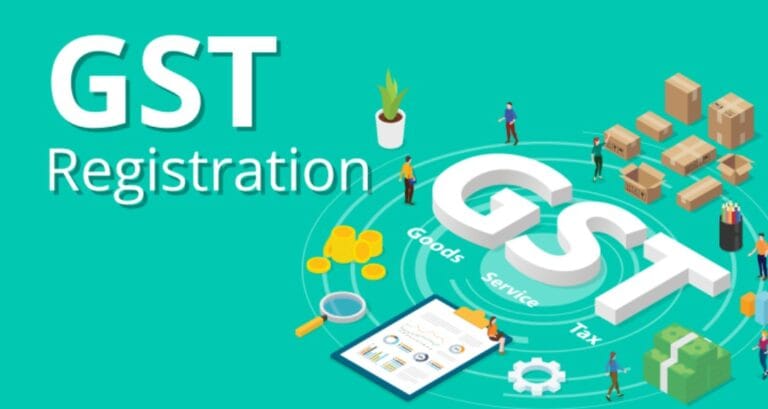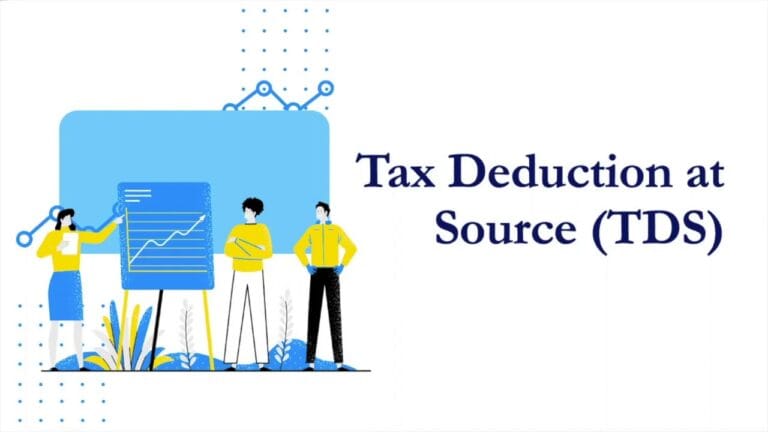Filing GST returns is a mandatory compliance requirement for all businesses registered under the Goods and Services Tax (GST) regime in India. These returns provide detailed information about the sales, purchases, tax collected, and tax paid by the business.
Types of GST Returns
- GSTR-1 : Monthly return for outward supplies of goods and services.
- GSTR-2A : Auto-drafted details of inward supplies made available to the recipient on the basis of the suppliers’ GSTR-1.
- GSTR-3B : Summary monthly return for declaring summarized details of outward supplies, input tax credit claimed, and tax payable.
- GSTR-4 : Quarterly return for composition scheme taxpayers.
- GSTR-5 : Return for non-resident foreign taxpayers.
- GSTR-6 : Return for input service distributors.
- GSTR-7 : Return for taxpayers required to deduct tax at source (TDS).
- GSTR-8 : Return for e-commerce operators required to collect tax at source (TCS).
- GSTR-9 : Annual return for regular taxpayers.
- GSTR-9A : Annual return for composition scheme taxpayers.
- GSTR-10 : Final return to be filed by a taxpayer whose GST registration is canceled.
- GSTR-11 : Return for taxpayers with a Unique Identity Number (UIN) to get a refund of taxes paid on inward supplies.
Frequency and Due Dates of Filing GST Returns
1. Monthly Returns
- GSTR-1: 11th of the subsequent month.
- GSTR-3B: 20th of the subsequent month.
2. Quarterly Returns (for taxpayers with turnover up to Rs. 5 crore who opt for the QRMP scheme)
- GSTR-1: 13th of the month following the quarter.
- GSTR-3B: 22nd or 24th of the month following the quarter, depending on the state.
3. Annual Returns
- GSTR-9 and GSTR-9A: 31st December of the subsequent financial year.
Steps to File GST Returns
1. Login to GST Portal
- Visit the GST portal (https://www.gst.gov.in/).
- Use your GSTIN and password to log in.
2. Select Return Dashboard
- Navigate to the ‘Services’ menu.
- Select ‘Returns’ and then ‘Returns Dashboard’.
3. Select the Return Period
- Choose the financial year and the return filing period (month/quarter).
4. Prepare Online/Offline
- For returns like GSTR-1, you can prepare the return online or upload the return prepared offline using the offline utility provided by the GST portal.
5. Enter Details
- Enter the required details such as outward supplies (sales), inward supplies (purchases), tax liability, and input tax credit.
6. Save and Submit
- After entering the details, save the form. Review the details before submitting.
- Click ‘Submit’ to lock the data.
7. Payment of Tax
- Make the payment for any tax liability using net banking, credit/debit cards, NEFT/RTGS, or via a challan at designated banks.
8. File Return
- After payment of tax, click ‘File Return’.
- Use the digital signature (DSC) or electronic verification code (EVC) to complete the filing process.
9. Acknowledgment
- Upon successful filing, an acknowledgment reference number (ARN) is generated for future reference.
Important Considerations for GST Return Filing
- Timely Filing: Ensure returns are filed within the due dates to avoid late fees and penalties.
- Accurate Data: Ensure all data, including sales, purchases, tax collected, and tax paid, is accurately reported.
- Reconciliation: Regularly reconcile the details of outward supplies and inward supplies with the suppliers’ data to claim the correct input tax credit.
- Record Keeping: Maintain proper records and documentation to support the data filed in GST returns.
Penalties for Late Filing
- Late Fee:
- 50 per day of delay (Rs. 25 each for CGST and SGST).
- 20 per day of delay (Rs. 10 each for CGST and SGST) for taxpayers with nil tax liability.
- Interest:
- Interest at 18% per annum on the outstanding tax liability for the period of delay.
Filing GST returns is a critical aspect of GST compliance, requiring accuracy, timely submissions, and proper record-keeping. Non-compliance can lead to penalties and interest charges. Businesses should stay updated with the latest GST rules and regulations to ensure seamless compliance. Seeking professional assistance can help businesses manage GST return filing efficiently and accurately.
At Ujjwal Gupta & Co
We, at Ujjwal Gupta & Co, are dedicated to delivering personalized, high-quality solutions tailored to meet your financial and business needs. With our team of professionals and a client-first approach, we ensure that every challenge is met with expert guidance and strategic insight.
We are dedicated to ensuring your business’s success by providing best service practice available in the industry and that too at a cost effective pricing. Our team of experts is excited to work with you and provide the support you need to thrive in the Indian business landscape.
Our only motive is to create Value for Our Clients and accordingly, have a Client Value System at our Office.
So, let us help you navigate the complexities of finance and compliance, empowering you to focus on what matters most — growing your business. Get in touch today, and take the first step towards financial peace of mind.
A GST return is a document that contains details of the taxpayer’s income (sales) and expenses (purchases) which is used by tax authorities to calculate the taxpayer’s net GST liability. Businesses registered under GST must file these returns periodically to declare their tax liability, claim Input Tax Credit (ITC), and pay taxes.
Every person or entity registered under GST is required to file GST returns, regardless of turnover or whether any business activity has taken place. Even if there are no sales or purchases in a particular period, a nil return must be filed. The filing requirements vary based on the type of taxpayer, such as regular taxpayers, composition scheme taxpayers, e-commerce operators, etc.
The key GST returns that businesses need to file include:
- GSTR-1: Monthly or quarterly return for outward supplies (sales) made by the business.
- GSTR-3B: Monthly summary return that includes details of sales, purchases, ITC claimed, and tax payable.
- GSTR-9: Annual return summarizing all GST transactions of the financial year.
- GSTR-4: Quarterly return for taxpayers under the composition scheme.
- GSTR-5: Return for non-resident taxpayers.
- GSTR-6: Return for Input Service Distributors (ISD).
GSTR-1 is a return for reporting the details of outward supplies (sales) of goods and services made by the registered taxpayer. It must be filed by:
- Monthly filers: Taxpayers with an annual turnover of more than ₹5 crore (by the 11th of the following month).
- Quarterly filers: Taxpayers with an annual turnover of up to ₹5 crore (by the 13th of the month following the quarter).
GSTR-3B is a monthly summary return that includes details of taxable outward and inward supplies, input tax credit claimed, and tax payable. All regular taxpayers must file GSTR-3B by the 20th of the following month to declare their overall GST liability and make payments.
The annual return (GSTR-9) must be filed by regular taxpayers for each financial year by December 31 of the following financial year. It provides a comprehensive summary of all monthly or quarterly returns filed during the year. Taxpayers with a turnover exceeding ₹2 crore also need to file GSTR-9C, which is a reconciliation statement certified by a chartered accountant.
Late filing of GST returns attracts penalties and interest:
- Late fee: ₹100 per day for CGST and ₹100 for SGST (₹200 total) for each day of delay, up to a maximum of ₹5,000. There is no late fee for IGST returns.
- Interest: Interest at the rate of 18% per annum is charged on the amount of unpaid tax from the due date of the return until the date of payment.
No, GST returns cannot be revised once they are filed. However, any errors or omissions in the return can be corrected in the return of the subsequent tax period. For example, if you find a mistake in a monthly or quarterly return, you can rectify it in the next month/quarter’s return.
The composition scheme is a simplified tax scheme for small businesses with turnover up to ₹1.5 crore. Taxpayers under the composition scheme:
- File GSTR-4 on a quarterly basis instead of monthly returns.
- Pay GST at a reduced fixed rate without availing of Input Tax Credit (ITC).
- File an annual return (GSTR-9A) by December 31 of the following financial year.
If GST returns are not filed:
- The taxpayer will be unable to generate an e-way bill for the transportation of goods.
- Late fees and interest charges will continue to accumulate.
- The taxpayer’s GST registration may be cancelled by the tax authorities.
- Input Tax Credit (ITC) will be restricted for both the taxpayer and the buyers who purchase from them, as their input tax credit depends on the seller’s return filing.
Why Choose UGC?

Client Centric Approach
Client is the key driver of our service offerings. Our approach to service offerings is based on a client centric and customized approach. Our specialized teams are a mix of technical and industry experience in order to serve clientele for their specific needs.

Team Work
We have built high performing teams supported by strong work ethic. Our team is a mix of experts, professionals and support staff from technical and varied academic, social and ethnic backgrounds. We believe diversification plays a vital role in motivating the team.

Quick Turnaround
We always endeavour for a quick turnaround time to serve our clientele. We are supported by an experienced and client focussed support teams to offer timely services to our clientele. In case of any business exigencies and time sensitive service requirements, you can always count on us.

Open Communications
We believe that open communication is the core principle in order to demonstrate trust, build long lasting and valuable relationships with clientele. We are committed to ensuring transparency in communication, service offerings and delivery. We provide professional services to our clients.

Client Value System
We value for the Client time and thus, we offer services that are value for money. Quality professional services are provided to our clients, so that they are able to achieve their desired results. We are a quality trademark in the industry and thus, our clients count on us always.

Quality in Delivering Work
Our service offerings are driven by quality and reviews at every level. We strive to provide a qualitative and value-added delivery to our clientele. At all times, we endeavour to provide exceptional client service by meeting client expectations and driving client satisfaction.




















